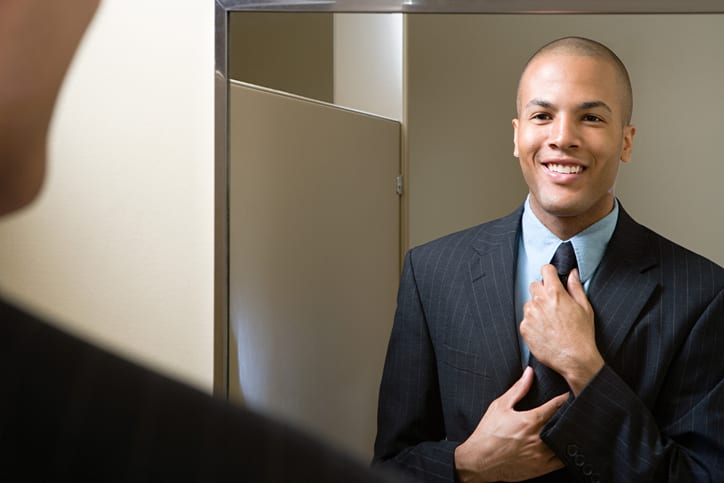Being called back for a second interview can stir up all kinds of thoughts and emotions: delight at making it to the next round, nervousness, and a sense of determination to truly prove yourself. However you feel about the news, one thing’s for sure: they’ve seen potential in you and your skills.
Although you’re in contention for the job, it’s important not to take your foot off the gas. The second interview is where you need to emphasise your enthusiasm and how you can add value to the company. Daunting though it may seem, we’ve come up with some second interview tips and advice to help you stand out.
Quick links
- What does a second interview mean?
- What happens in a second interview?
- How to prepare for a second interview
- Tips to succeed at your second interview
What does a second interview mean?
A second interview should be seen as a positive.

Especially for competitive openings, companies will usually have a multi-stage interview process that might consist of two or even three interviews. If you’re asked to attend a second interview, it means that the employer thinks you’re a potential fit for the role, meaning you have a good chance of securing the job if you continue to impress the interviewers.
What happens in a second interview?
The second round of interviewing is where the vetting process gets more serious.
The conversations and questions in second interviews are usually more in-depth than the initial interview. Questions might go into more detail about how you’d slot into the company rather than just focusing on your skills. They’re also an opportunity to build on the rapport from your first interview with the nerves of meeting new people firmly in the past.
Showing how you add value is important in this stage. Are they hiring to speed up processes, add specific skills, or increase output? In your email invite to the second interview, be sure to check for any information about what it will involve, such as:
- Whether you have to do any tests or exercises
- Whether it will be a competencyor strength-based interview
- Who will be interviewing you? Second-stage interviews are often conducted by more senior staff
- Any indications of the topics that will be covered
How to prepare for a second interview
In deepening your understanding of the job and how you’ll succeed in the role, it’s a good idea to do the following steps before your second interview:
Review notes from your previous interviews
Take time to read back over your notes and preparation from your first interviews as a reminder of how it went. Identify your best answers and which you feel might have let you down. Perhaps there were some experiences or successes that you forgot to mention that are worth bringing up next time?
Prepare questions for your interviewers
Asking relevant, role-specific questions at the end of your second interview shows you’ve continued doing your research between interviews. For instance, you could ask about current projects, what you might be working on if you’re successful, or, if there’s a news story relevant to the industry, you might want to inquire about the company’s response to it.
You might also want to ask about the department you’d be joining, which can lead to touching on things such as team structures, dynamics and working culture.
Consider answers to potential questions
It’s often difficult to know what questions will be asked in a second interview. It may be the case that you’ll cover the same topics as before, just in greater detail, or they may want to discuss different things entirely. If the first interview looked at your existing skills, then the second may focus more on how you’d approach specific challenges in the role.
While the questions might be more in depth, with the proper preparation, you will be able to answer questions on any topic using the STARR interview method.
Research the company in detail
Whether it’s the hiring manager, members from the team you’ll be joining, or upper management interviewing you, they’ll certainly ask you questions that will require knowledge of the company to answer. Utilise platforms like LinkedIn and the company’s website to establish their company values and the history of the business. Even if you’re not directly asked about these things, they’re sure to shape your answers positively.
Plan an appropriate outfit
Just because it’s a second interview, this isn’t the time to get complacent. Just like a first interview, dress appropriately.

A great tip is to dress for the job you want, meaning that you should aim to replicate the dress code of employees who already work at the company you’re interviewing for.
Tips to succeed at your second interview
Be enthusiastic and energetic
Second stage interviews tend to be longer, and you may need to contend with a series of meetings or interviews with individuals and small groups. It may be tiring, but it’s important to remain enthusiastic and energetic throughout.
Be prepared to answer variations of the same questions
In addition to the new answers you’ve prepared, have your previous answers stored away in your head too. There’s a chance your first interviewer didn’t pass on some information to their colleagues, so be ready to repeat some of the same answers.
Remember you’re always being evaluated
Don’t underestimate the importance of questions that appear less-than-probing. Anyone you meet might be asked for their impressions later, so it’s essential that you maintain a professional demeanour and don’t let your guard down.
Be aware of group activities
Group activities are designed to assess your ability to listen, lead, and come to group decisions. Be aware of this during the group interview to ensure that your skills are put across adequately.
Don’t forget about body language
Confidence in your body language starts from the first handshake. In addition to your voice, which should be clear, it’s important to also keep your non-verbal cues in mind. Keep your feet flat on the ground or crossed at the ankles, maintain good posture and exude professionalism in your appearance.
What happens after a second interview?
After completing your second interview, you will usually receive communication from the hiring manager. For multi-stage interview processes, this might lead to an invite to a further interview. If this was the final interview, your interviewers would likely let you know when to expect feedback or a potential job offer.
Click here for the latest news and features from SEFE or visit our homepage to find out about our latest career opportunities.
The views, opinions and positions expressed within this article are those of our third-party content providers alone and do not represent those of SEFE. The accuracy, completeness and validity of any statements made within this article are not guaranteed. SEFE accepts no liability for any errors, omissions or representations.







